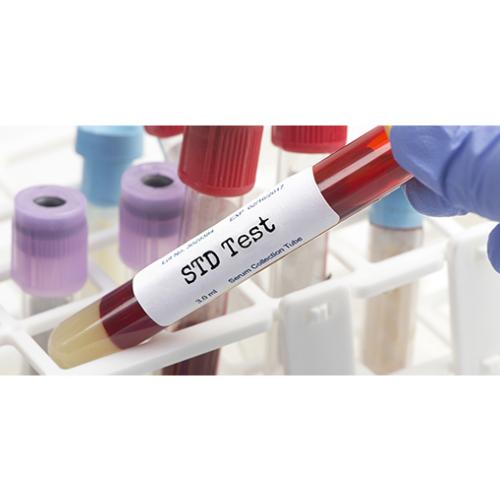 Sexually Transmitted Infections (STIs) can be caused by virus, fungus, parasite or bacteria. Anyone who is sexually active may be at risk of acquiring an STI. The risk is higher forthose with increased numbers of sexual partners, or who have had sex with someone who has/had many partners, or have had unprotected sex. Sexually Transmitted Infections (STIs) can be caused by virus, fungus, parasite or bacteria. Anyone who is sexually active may be at risk of acquiring an STI. The risk is higher forthose with increased numbers of sexual partners, or who have had sex with someone who has/had many partners, or have had unprotected sex.
How frequently should STItesting be offered to men?
All sexually active men should betested for STIs at least annually.Men at high risk of STIs shouldbe tested every 3 months.High risk includes:
- any unprotected sexual contact(oral, genital or anal) with anew partner.
- following the diagnosis ofa new STI.
- drug use may be a marker ofhigh risk behaviour and a detailedsexual history is required inthis group.
Comprehensive STI Screening for Men includes screening for the following:
- HIV: HIV is most commonly passed on through unprotected sex. It can also be transmitted by coming into contact with infected blood for example, sharing needles to inject steroids or drugs. The HIV virus attacks and weakens the immune system, making it less able to fight infections and disease. There's no cure for HIV, but there are treatments that allow most people to live a long and otherwise healthy life. AIDS is the final stage of an HIV infection, when your body can no longer fight life-threatening infections. Incubation period: Usually 10-90 days, but up to180 days.
- Syphilis: Syphilis is a bacterial infection that in the early stages causes a painless, but highly infectious, sore on your genitals or around the mouth. The sore can last up to six weeks before disappearing. Secondary symptoms such as a rash, flu-like illness or patchy hair loss may then develop. These may disappear within a few weeks, after which you'll have a symptom-free phase. The late or tertiary stage of syphilis usually occurs after many years, and can cause serious conditions such as heart problems, paralysis and blindness. Incubation period: 921 days, but up to 90 days.
- Chlamydia: Chlamydia is the most common STI in the UK and is easily passed on during sex. Most people don't experience any symptoms, so they are unaware they're infected. In men, chlamydia can cause pain or a burning sensation when urinating, a white, cloudy or watery discharge from the tip of the penis, and pain or tenderness in the testicles. Incubation period: 13 weeks, up to 6 weeks.
- Gonorrhoea: Gonorrhoea is a bacterial STI easily passed on during sex. About 50% of women and 10% of men don't experience any symptoms and are unaware they're infected. In men, gonorrhoea can cause pain or a burning sensation when urinating, a white, yellow or green discharge from the tip of the penis, and pain or tenderness in the testicles. Incubation period: 27 days, up to 1 month.
- Herpes Simplex I/II: The herpes simplex virus is highly contagious and can be easily passed from person to person by close direct contact. Small, painful blisters or sores usually develop, which may cause itching or tingling, or make it painful to urinate. After someone has contracted the virus, it remains inactive (dormant) most of the time. Incubation period: 214 days, testing is most appropriate for patients with symptomatic lesion(s).
- Trichomoniasis: Trichomoniasis is an STI caused by a tiny parasite called Trichomonas vaginalis (TV). It can be easily passed on through sex and most people don't know they're infected.In men, trichomoniasis rarely causes symptoms. You may experience pain or burning after passing urine, a whitish discharge, or an inflamed foreskin. Incubation period: 428 days, many patients are asymptomatic carriers.
- Ureaplasma: Ureaplasma urealyticum is a type of urinary tract infection which can be contracted through sexual contact. Usually asymptomatic, it is part of the normal flora of both men and women. It is found in about 70% of sexually active humans. In males with lower sperm quality, ureaplasma infection could lead to a more pronounced decreased in some seminal parameters and compromise sperm motility. Incubation period: Symptoms develop at 13 weeks.
- Mycoplasma genitalium: This particular infection can cause men to experience non-gonococcal or non-chlamydial urethritis, and women to experience cervicitis. However, it is more commonly asymptomatic. Incubation period: Symptoms develop at 13 weeks.
- Hepatitis B: The Hepatitis B virus is transmitted through contact with infected semen, blood, and other bodily fluids. The liver swells, and an individual can experience serious liver damage as a result of HBV. This can eventually lead to cancer, and the disease can sometimes become chronic. Incubation period: Usually 45180 days, average of 60 90 days.
- Hepatitis C: Hepatitis C (HCV) is spread through contact with an infected persons blood-- which may be present because of genital sores or cuts or menstruation. HCV has been detected with greater-than-average frequency among people who have a history of sexual promiscuity. Incubation period: Usually 9180 days, average of 4565 days.
Note: Blood samples, urine and swabs required. Results in 3 to 4 days.
|